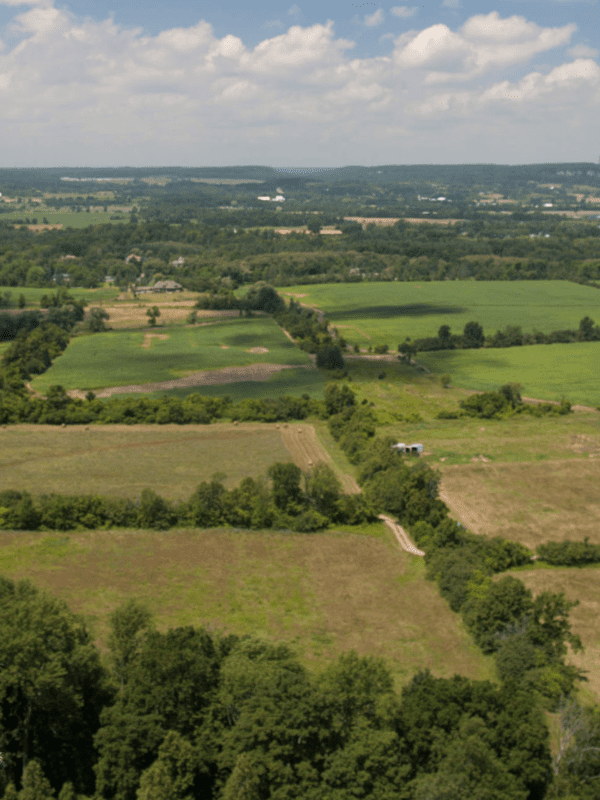Toronto | Traditional territories of the Huron-Wendat, the Anishnaabeg, Haudenosaunee, Chippewas and the Mississaugas of the Credit First Nation – Today, Ontario’s Auditor General Bonnie Lysyk lent her authoritative voice to the chorus of citizens, Environmental NGOs, land use planning experts, and non-partisan civil servants who have sounded the alarm about the government’s approach to land-use planning in Ontario.
According to Lysyk, the government’s changes to Growth Plan policies, together with its unprecedented overuse of Minister’s Zoning Orders (MZOs) have “undermined” the Growth Plan for the Greater Golden Horseshoe’s “long-term vision” of reining-in sprawl in the region. She notes that Minister Clark ignored warnings from within the provincial civil service itself, regarding the risks his approach to land-use would create.
Of particular note, Auditor General Lysyk found:
- 2020 amendments to the Growth Plan and other Greater Golden Horseshoe planning documents were made despite warnings from the Ministry of Natural Resources and Forestry, Ministry of Environment Conservation and Parks, and Ministry of Agriculture, regarding their impact on the loss of agricultural land, and on natural heritage, and clean water.
- The proposed Highway 413 is an example of an infrastructure decision inconsistent with the province’s land-use planning policies.
- The Growth Plan overestimations of population growth in outer Greater Golden Horseshoe suburbs are having adverse practical and financial consequences for those municipalities, but the government is failing to investigate whether there are flaws in the projection methodology or other factors which account for the disparity between projected and actual growth.
- The Ministry’s refusal to extend the July 1, 2022 deadline for Municipal Plan completion after its last-minute revisions to the Growth Plan and Land Needs Assessment Methodology, means that municipalities have not been given the time needed to update their official plans properly.
- The Ministry of Municipal Affairs is failing to measure its progress towards targets such as: creating more density in existing neighborhoods, ensuring new development has enough density to support public transit, and diverting growth inside urban boundaries. In fact, the Ministry of Municipal Affairs insists it is still working on the indicators it will use to assess progress and have not provided a timeline for completing them. This is despite a performance report six years ago that these indicators needed to be developed.
- The broad and frequent use of MZOs is undermining municipal land-use and fiscal planning, pushing sprawl development outside settlement area boundaries, where it is inappropriate. While the government has often justified Minister’s Zoning Orders by asserting they were requested by municipal governments, the Auditor General found that in 68 per cent of cases, these requests actually completely circumvented the upper-tier municipal governments that are actually in charge of regional land-use planning and public services.
- The government’s failure to create any formal criteria or transparent process for issuing MZOs risks creating perceived conflicts of interest, with a large share of MZOs benefitting the same seven developers. Moreover, “enhancements” to the MZO power, such as exemption from the Provincial Policy Statement, the overriding of site plan control, and the forced issuance of Conservation Authority permits, have eliminated independent checks and balances that would otherwise apply.
- The government has limited Conservation Authorities’ ability to make independent decisions with respect to their involvement in land-use planning process.
Today’s audit of Land-Use Planning in the Greater Golden Horseshoe confirms that this government has simply abandoned the goal of curbing suburban sprawl in southern Ontario. Auditor General Lysyk confirmed that Minister Clark has been pushing forward with inflated suburban growth targets and sprawl MZOs, with full knowledge they would undermine the long-term vision of the Growth Plan, lead to widespread loss of farmland and natural areas, put stress on water resources and increase car-dependency that fuels climate change.
ABOUT ENVIRONMENTAL DEFENCE (environmentaldefence.ca): Environmental Defence is a leading Canadian advocacy organization that works with government, industry and individuals to defend clean water, a safe climate and healthy communities.
– 30 –
For more information or to request an interview, please contact: Allen Braude, Environmental Defence, abraude@environmentaldefence.ca







